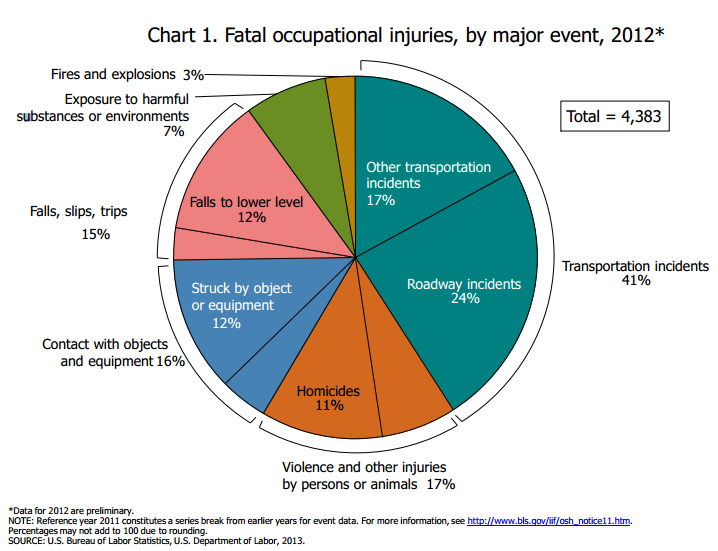An estimated 4,383 employees died from injuries sustained while working, according to new preliminary data released by the Bureau of Labor Statistics today. This is a reduction from last year’s tally of 4,693. It is also a decrease in in the fatal work injury rate from 3.5 per 100,000 full time workers in 2011 to 3.2 per 100,000 in 2012. The numbers are often revised upwards, and revisions will be released in spring 2014.

